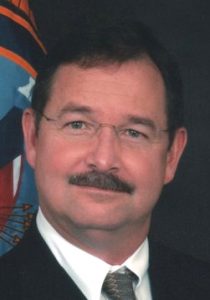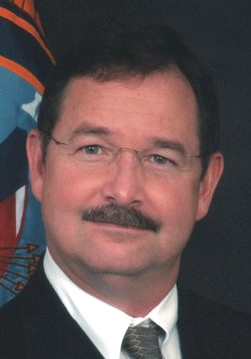
As this column is being penned our nation has been rocked by turmoil initiated through a police officer use of force in Minneapolis. Most readers of this column will be familiar with the shocking video of Mr. George Floyd pinned under the knee of Officer Derek Chauvin. Over the course of 8 minutes and 46 seconds Mr. Floyd repeatedly explained that he could not breathe, a fellow officer expressed concern and bystanders (including a self-identified paramedic) repeatedly asked the officer to check Mr. Floyds pulse. Even after it was clear the Mr. Floyd was unconscious the officer refused to remove his knee. A few observations (warning this is my opinion and I certainly do not speak for all of law enforcement):
Mr. Floyd was handcuffed, prone on the ground, outnumbered four to one and under the complete control of the officers. They (the officers) had a moral and legal obligation to protect Mr. Floyd’s health and welfare. Within law enforcement positional asphyxia, laying a person prone, while handcuffed, and applying weight, has been a recognized problem since at least the 1990’s. I am 100% certain Officer Chauvin was familiar with the hazards of positional asphyxia. With what appears to be an abundance of malevolence Officer Chauvin chose to continue trying to punish an already deceased human. Officer Chauvin’s behavior was, in my opinion, unconscionable, unacceptable and he has earned the right to be prosecuted. Officer Chauvin’s actions do not reflect a training failure but rather represent the failure of his heart.
Post the death of Mr. Floyd there have been nationwide protests against police brutality and calls for the defunding or abolition of law enforcement. There have been other calls for reform, retraining or reimagining the role of the police officer in society. There have been demands for reform in the criminal justice system from low bail to no bail after a person has been arrested for a crime, decriminalization of possession of narcotics and non-prosecution of persons who commit minor thefts out of economic necessity.
I want to make a very important point. Our police departments reflect society. Society decides who becomes officers through a hiring process, governmental units decide whether and how their departments are constituted and what procedural rules they follow and how laws are enforced. If society does not like the laws that exist or how they are being enforced the solution is elegantly simple. Elect persons who think like you, have the legislature abolish laws you do not like and legislate the laws you want, and fund or defund the criminal justice system as you see fit.
Several police chiefs have made public statements about changing their policies with a “duty to act.” In short, their department policy mandates that if an officer observes another officer engage in criminal misconduct, they have a “duty to act.” I am supportive of the mindset that an officer should intervene when they observe a police officer breaking the law. I would, however, point out that the Texas Code of Criminal Procedure Art. 2.13. Duties and powers are quite clear, “It is the duty of every peace officer to preserve the peace within the officer’s jurisdiction. To effect this purpose, the officer shall use all lawful means. The officer shall: in every case authorized by the provisions of this Code, interfere without warrant to prevent or suppress crime.”
The Code of Criminal Procedure does not say “should”…it is “shall.” An officer shall interfere without warrant to prevent or suppress crime. Thirty+ years into this profession and I have never been confused about intervening when an officer is engaged in criminal misconduct.
TX CCP Art. 2.13 Code of Criminal Procedure is a powerful statement made by the people of Texas through their elected representatives.
But, dear reader, how can we make law enforcement “better” and more responsive to community needs (assuming we do not just defund the whole thing):
- Obtain better data. The National Incident Based Reporting System is a Federal Bureau of Investigation controlled data base electronically transmitted to the Federal government by police departments across the United States. It provides a snapshot of crime and use of force by police and data that can be used by legislators to, well, legislate. Unfortunately, NIBRS has its challenges as a database. Different states call the same crimes by different names and what may be a felony in one state is a misdemeanor or not even a crime in another state. Some states choose not to participate, or their participation is fractional. Another challenge faced by those who wish to capture accurate data is the stubborn insistence on hundreds of different records management systems across the nation. Each law enforcement records management system requires a unique and “NIBRS” compliant interface. We, as a profession and as a nation, are never going to have the same laws on the books. But I do not think it is crazy for each state to adopt one records management system for all their law enforcement officers so that data collected is reported equally across all jurisdictions. Good data is critical for good decision making.
- Standardized police academies/training. Texas does a very good job of defining a baseline of training for all State-certified law enforcement academies. The Texas Commission of Law Enforcement monitors the academies and tracks an officers training throughout their career. However, after having worked with and hired officers from many different academies it is abundantly clear that performance standards vary quite a bit from school to school and department to department. I sincerely think we, as a profession, can do a lot of good by ensuring consistent delivery of training from the academy and very importantly post academy. Training must be mandated by the State as many departments struggle with the willpower to provide the resources of time and money for training. I will touch on this again but ONE use of force policy, ONE physical fitness standard, ONE field training standard is of vital important for consistent police officer performance.
- One Standard Operating Procedure Manual for Officers. This will almost sound crazy but every police department in Texas has the latitude to develop their own written directives. As a result use of force rules vary from agency to agency causing confusion when we work together and certainly causing confusion when an officer transfers to a different agency and has to fight years of training to behave in a different manner. Different directives also result in vehicle pursuits that vary from departments who will pursue traffic violators until the wheels fall off their squad cars to departments who will not chase anyone short of a murderer. I strongly urge one set of written directives for all police officers, drilled into them during the academy and field training process and resulting in a consistent use of force policy, consistent de-escalation policies, mental health policies, pursuit policies etc. etc. If an officer engages in conduct that had been sanctioned by policy and the Texas Code of Criminal Procedure, but society doesn’t approve of the conduct, a very rapid policy change could be made at the State level and pushed out to EVERY officer in Texas by electronically changing the State of Texas Peace Officer operating manual. The Texas Police Chief’s Association has diligently worked towards a standardized manual for all departments and helps any department that requires assistance with development of policy and procedure. I think we, as a profession, could clean up a lot of inconsistency by adopting ONE manual.
- Mandate the use of body cameras for ALL police officers across the nation. I am convinced this one simple rule would modify citizen and officer behavior for the good. In Texas video cameras are mandated for all vehicles engaged in traffic stops and body cameras are strongly encouraged. I understand that on the front end the cost seems high… until you calculate the amount of resources you’ll expend, as a police department, because of a poor outcome during a critical incident in which the department did not obtain video.
- Police Leadership. This is certainly a subjective recommendation, but it is one I strongly believe in. Law enforcement leadership has a sacred obligation to protect and serve our residents. It is our responsibility to find good cops to serve the community and remove cops who tarnish the badge. It is also our responsibility to tell the truth, educate people about the profession and stand in support of our organization when the right thing was done regardless of the outcome.
- Political and Media Narratives. If I could have one wish come true for the law enforcement profession it is this: Quit blaming everything that goes wrong in the United States on cops. We did not magically create our societal stressors and we cannot magically fix them. We are not monolithic in thought and behavior. We are not the bad people. We reflect this great country, and despite the daily internet and nightly news beat down, most Americans are very good, caring, loving, human beings.
One final thought. I believe it is incumbent on all of us to treat everyone we meet with courtesy and to recognize their humanity. It is wrong and abhorrent to, as a citizen of the United States, judge a person by their race, culture, religion, or socio-economic status simply because they are different from you.
Thank you for the opportunity to serve.






 GIF.gif)











